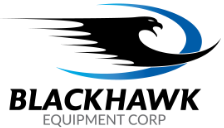Extend the Life of Your Air Compressor: Top Tips
12/02/2024
An industrial air compressor is a workhorse that powers countless operations, from construction sites and manufacturing plants to automotive shops and healthcare facilities. To ensure your compressor continues to perform reliably and efficiently for years to come, proper care and maintenance are essential.
This guide provides valuable tips and best practices for operating, storing, and maintaining your air compressor, helping you maximize its lifespan and avoid costly downtime.
1. Proper Installation Sets the Stage
Before you even switch on your new air compressor, proper installation is crucial.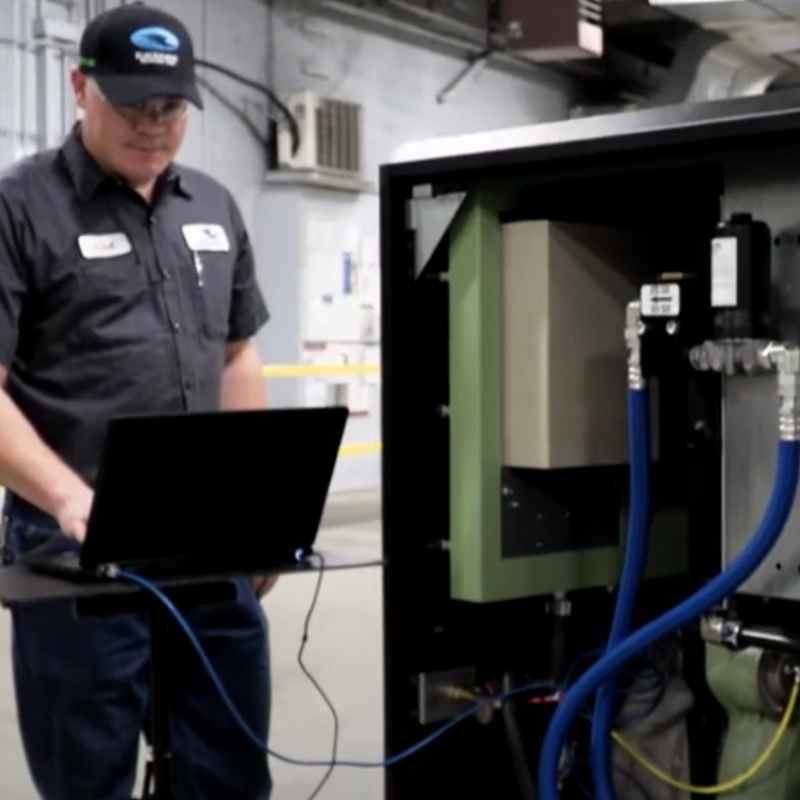
-
Location, Location, Location: Choose a clean, dry, and well-ventilated location. Avoid areas with excessive dust, moisture, or extreme temperatures. Ensurethere's enough space around the unit for proper airflow and maintenance access.
-
Stable Foundation: Place the compressor on a level, solid surface to minimize vibration and ensure stability.
-
Electrical Connections: Ensure the electrical supply matches the compressor's voltage and phase requirements. Use a dedicated circuit with the appropriate amperage rating.
2. Daily Operational Best Practices
-
Warm-up Period: Allow the compressor to warm up for a few minutes before subjecting it to heavy loads. This allows the oil to circulate and reach optimal operating temperature.
-
Monitor Gauges: Regularly check the pressure gauge and oil level gauge (if applicable) to ensure they are within the recommended ranges.
-
Avoid Overloading: Don't exceed the compressor's rated capacity. Overloading can lead to overheating, reduced efficiency, and premature wear and tear.
-
Cool Down Time: After extended use, allow the compressor to cool down before shutting it off. This helps prevent moisture buildup and condensation inside the unit.
3. Essential Maintenance Tasks
Regular maintenance is the key to a long and healthy life for your air compressor.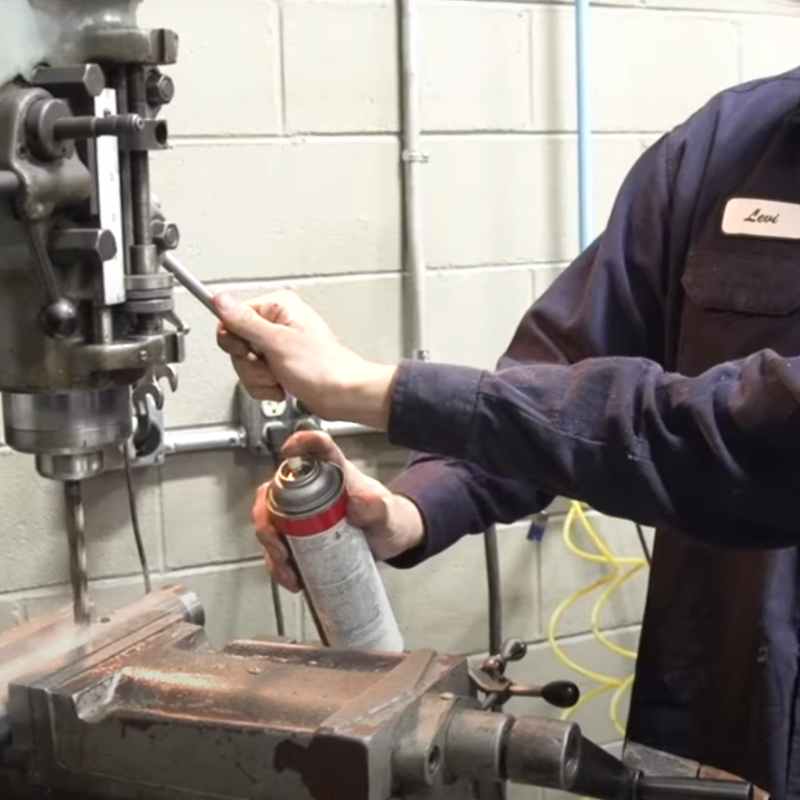
-
Air Filter Replacement: Change air filters regularly, as recommended by the manufacturer or more frequently in dusty environments. A clogged filter restricts airflow, reduces efficiency, and can even damage the compressor.
-
Oil Changes: For oil-lubricated compressors, change the oil according to the manufacturer's schedule. Use the correct type and grade of oil to ensure proper lubrication and cooling.
-
Drain Moisture: Drain the air receiver tank daily or as recommended to remove accumulated moisture and prevent corrosion.
-
Inspect Belts and Hoses: Check belts for wear and tear and adjust tension as needed. Inspect hoses for cracks, leaks, or damage and replace them if necessary.
-
Clean Cooling Fins: Periodically clean the cooling fins to remove dust and debris that can obstruct airflow and cause overheating.
4. Storage Tips for Extended Downtime
If you need to store your air compressor for an extended period, follow these steps:
-
Thorough Cleaning: Clean the compressor thoroughly, including the air intake, cooling fins, and tank.
-
Drain All Fluids: Drain the air receiver tank completely and remove any condensate. For oil-lubricated compressors, change the oil before storage.
-
Protect from the Elements: Store the compressor in a clean, dry, and temperature-controlled environment. Cover it to protect it from dust and moisture.
-
Prevent Rust: For long-term storage, consider adding a rust inhibitor to the tank and lubricating moving parts.
5. Addressing Common Problems
Even with proper care, air compressors can experience issues. Here are some common problems and how to address them: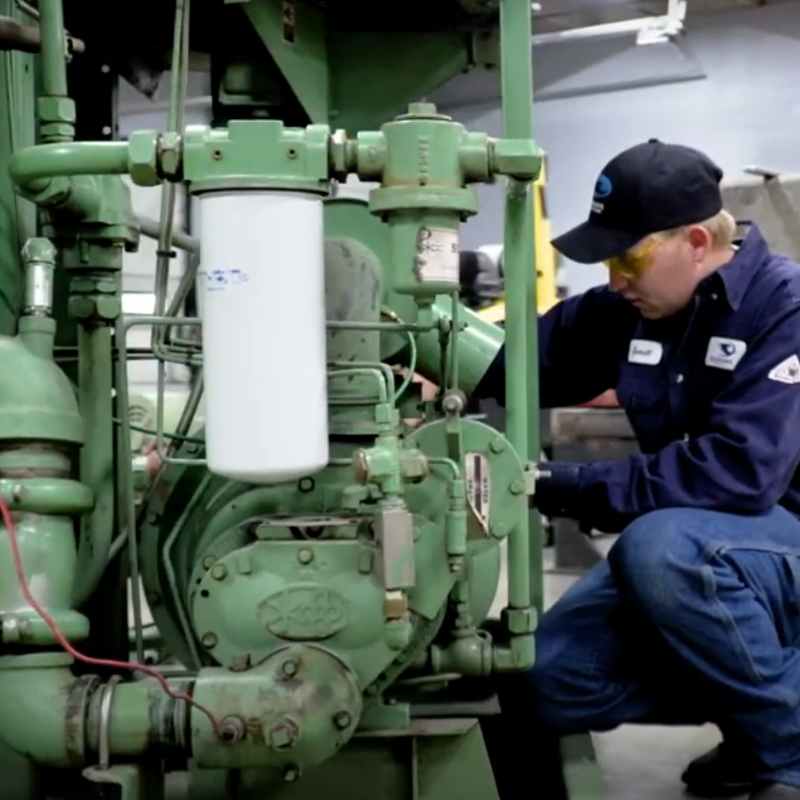
-
Compressor Won't Start: Check the power supply, pressure switch, and motor overload protector. If the problem persists, contact a qualified technician.
-
Low Air Pressure: Inspect for leaks, clean or replace air filters, and check the pressure regulator. If necessary, consult a technician for further diagnosis.
-
Compressor Runs Continuously: Address leaks, inspect the pressure switch and unloader valve, and ensure the compressor is properly sized for the demand.
-
Overheating: Improve ventilation, clean cooling fins, maintain proper oil levels, and avoid overloading the compressor.
-
Unusual Noises: Tighten loose belts, inspect for worn bearings or valve problems, and address any loose components.
6. The Value of Professional Service
While regular maintenance can be done in-house, periodic professional service is crucial for optimal performance and longevity.
-
Preventative Maintenance: Schedule annual or semi-annual preventative maintenance with a qualified technician. This includes comprehensive inspections, cleaning, lubrication, and replacement of worn parts.
-
Expert Troubleshooting: If you encounter complex problems or suspect internal damage, a professional technician can diagnose and repair the issue effectively.
7. Invest in Quality Parts
When replacing parts, always choose high-quality components from reputable suppliers.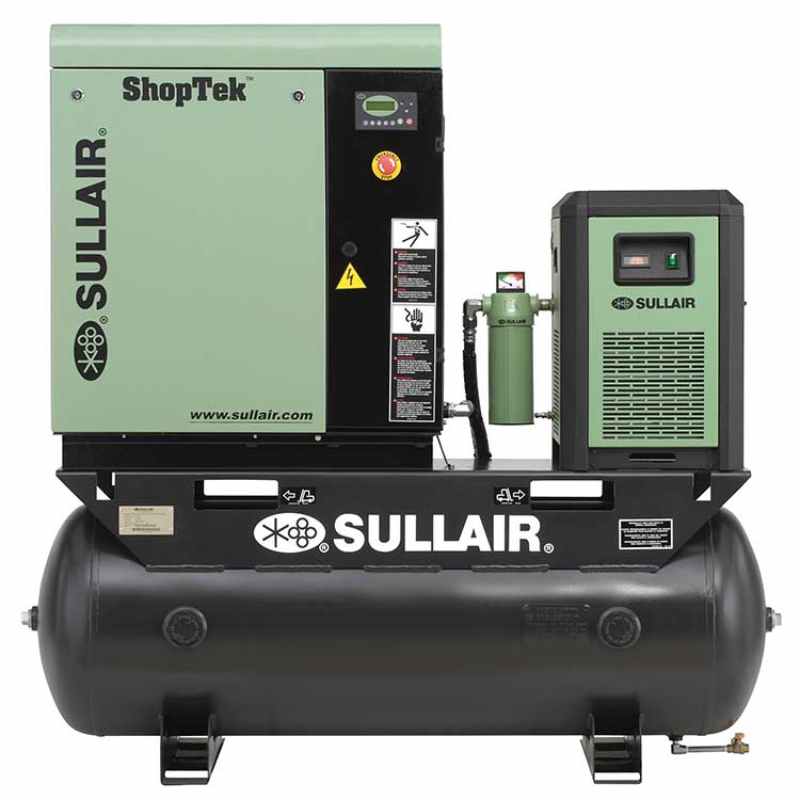
-
OEM Parts: Original Equipment Manufacturer (OEM) parts are designed specifically for your compressor model, ensuring optimal performance, compatibility, and longevity.
-
Avoid Cheap Alternatives: While cheaper alternatives may be tempting, they can compromise performance, damage your compressor, and void warranties.
By following these tips and incorporating them into your operational procedures, you can significantly extend the life of your air compressor. Remember, a well-maintained compressor translates to increased productivity, reduced downtime, and a healthier bottom line.
Blackhawk Equipment: Your Partner in Air Compressor Care
Blackhawk Equipment offers comprehensive service and support for all your air compressor needs. Our team of certified technicians can provide expert installation, maintenance, repair, and troubleshooting. We also offer a wide selection of high-quality OEM parts for all major brands. Contact us today to learn more about how we can help you maximize the lifespan of your air compressor.
